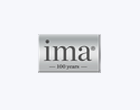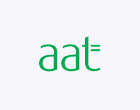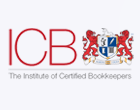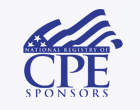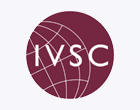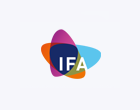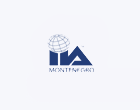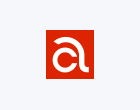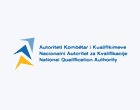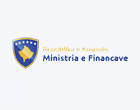- Organizational structure of the Institute
- Institute for Accounting, Auditing and Finance is a professional association, nonprofit and independent legal entity, composed of all its members.
- The rules of operation and organizational structure is defined by the Statute based on the Law on Freedom of Association in Non-Governmental Organization No. 04/L-57 and the Law No.04/L-014 on Accounting, Financial Reporting and Auditing.
- Activities and professional scope
- Professional scope of the Institute is as follows:
- Prepare, adopt and develop the curriculum for participants who attend the qualification levels in the field of accountancy and auditing, competently and independently.
- In accordance with the implementation of curriculum, the Institute provides professional titles according to qualification levels based on the Law on Accounting, Financial Reporting and Audit.
- Institute may also adopt other programs and professional titles
- Qualified curriculum and other programs set out by this Article, is approved by Commission for Professional Education.
- Establishment
- KAF Institute was founded by the Statute on 27 March 2005, under the name “Institute for Accounting, Auditing and Finance”.
- Duration
- KAF Institute was established to carry out the activity for an unlimited time.
- Institute, may voluntarily cease operations and be dissolved only in the manner specified by the statute.
- Name, Headquarters and Symbols
- The name of the Professional Assosiation is: Institute for Accounting, Auditing and Finance “KAF Institute”. Hereinafter, the term “Istitute” is used in this Act.
- Insitute has its headquarter in street Bedri Pejani Nr. 1– 10000 Prishtina, Kosovo.
- Insitute, may open braches in other cities of the country and abroad. The opening of the branches is done by the specific decision of the General Assembly.
- Institute has its own emblem, which consists of an inscription “Institute”. Under the inscription there are three circles, including three initials according to the official abbreviation “KAF”, while following is the complete name of the Institute: “Professional Association for Certifying Accountants and Auditors”.
- Institute has round ans square stamp, the content of which is regulated by a special act issued by the Executive Director.
- Every notification, mail, invite, or other legal act is considered to have been submitted on a regular basis to the Institute, if it is submitted directly or by mail to authorized representative, or to the address specified in paragraph 2 of this Article.
- Legal Status
- Institute has the status of a legal entity that operates in legal subjectivity of the Republic of Kosovo.
- Institute does not distribute any net earnings or profits for any person. Assets, revenues and earnings will be used to support the goals and nonprofit activities. This provision does does not preclude the payment and reasonable compensation for persons who perform certain jobs and services.
- Responsibility
- Institute, in all juridical relations is presented as a legal entity and has legal responsibility under the law on legal persons.
- Members of Institute are not personaly responsible for the debts or obligations of the Institute, but are personaly responsible for their actions against the applicable legistation and other acts of the Institute.
- Communication, Information and Transparency
- Regular and constant communication between and with members of the Institute is the duty of the Executive Director, Board of Directors and other personnel depending on their areas of responsibility.
- Communication and information is done directly, during meetings, through formal documents, issuing newsletters, leaflets, web-pages, e-mail, seminars, conferences and in other appropriate ways.
- The activity of the Institute in public relations is transparent. Transparency for exercising the activity is provided in accordance with applicable law and other acts of the Institute.
- Institute shall maintain constant communication with other stakeholders, and shall give infomations, announcements and interviews in various media.
- Communication with external parties and the process of providing information outside the Institute, is performed by the Executive Director or by a person authorized by him.
- Aims and activities of the Institute
- Institute is organized and operates in order to prepare skilled personnel in the field of accounting, auditing and finance, as well as advocacy in other areas of the economy.
- To accomplish the goals of the preceding paragraph, Institute conducts professional activities, but not limited on:
- Providing educational programs for training, testing and certifying accounting technicians, accountants and auditors;
- Providing facilities so that registered members may exercise their profession in accordance with legal requirements;
- Providing adequate programs on continuing professional development of members with regular status and others, in order to be in pace with the needs of the economy;
- Contributing to the establishment of legal regulations and professional standards of accounting and auditing that are approved by the Kosovo Council for Financial Reporting;
- Cooperating with other local and foreign professional association, as well as experts, so that it can provide more advance experience for its members;
- Cooperating with economic organisation, researching and engaging in generating new job opportunities;
- To encourage and develop research in order to achieve goals, to develop practical methods to standardize the terms of accounting and auditing;
- To develop and publish bulletins related to accounting, auditing and other fields of the economy;
- To participate in local and international conferences, symposiums and committees related to topics that are an object of the Institute;
- Membership in international professional organizations;
- Cooperating with certain local, regional and international education institutions in order to advance the study programs;
- To perform any other tasks within the scope of activities defined in the Statute.
- Members
- The founding members;
- Registered members with regular status pursuant to Article 20.1 and 21.1 (1.4) of the Law no. 04 / L-014 for accounting, financial reporting and auditing;
- Other entities providing professional services;
- The personnel engaged in executive bodies, professional and administrative;
- Members of honor;
- Volunteer members;
- The rights and obligations of members.
- To elect and be elected to executive bodies, professional and administrative;
- According to the position and through their representatives, they will supervise and control tasks and activities of the Institute;
- Participate in the activities of professional bodies and other organizational units;
- Shall be regulary informed on operation and administration of the Institute;;
- Exchange information and experiences, conduct consultations and organize professional counseling for qualified educational programs and continuing professional development;
- Propose amendments and adoption of general acts;
- To have professional support by providing educational programs and other training services.
- Obligations of members:
- To comply with the provisions of the Statute, Code of Conduct, other general acts, to implement the decisions of the executive bodies and professional standards;
- Carry out regular annual membership payment;
- To participate in other professional activities of interest.
- Members of the Institute cannot simultaneously hold more than one office in elected bodies, except as provided by the Statute.
- General Assembly;
- The board;
- Professional committees;
- Executive director, and
- Administrative office.
- General Assembly
- The General Assembly is the highest body of governance.
- The General Assembly consists of elected representatives of the members of the Institute in accordance with the election procedure determined by the Statute.
- General Assembly is headed by Chairman of the Assembly.
- Competencies of the Assembly
- Statute and its amendments;
- Asambly tasks regulation and other general acts except those within the competence of other bodies;
- Annual financial report and general report on the activities of the Institute;
- Other decisions regarding the Institute’s activities.
- Assembly pursuant to the Statute elect:
- Vice President and the Chairman of the Assembly;
- Elect and dismiss members of the Executive Council;
- Elect and dismiss members of committees.
- Assembly pursuant to the Statute shall specify:
- Criteria and election procedure of Assembly representative (members) from other established branches;
- Announcement of elections for members of Assembly;
- Executive Council
- Reviews and prepares draft materials for General Assembly;
- Adopts the work program of the Institute and monitors its implementation.
- Approves general acts which are within the competence of the Council;
- Takes decisions on other issues and organizational expertise in accordance with the Statute;
- It is responsible for supervising the administration of property and dispose of it upon proposal of the Executive Director;
- Coordinates actions with the respective commissions regarding to training programs according to certain levels and continuing professional education programs and monitors their implementation;
- In cooperation with the Executive Director organizes and supervises quality control system and professional personnel performance;
- Investigates and evaluates the violation of rules of conduct and initiates the process to the Commission regarding the matters of professional ethics;
- In other entities represents the Institute through its Chairman once the issue falls within the responsibilities of the Council representative;
- Ensures that members of the Institute implement best practices in the field of professional standards, Code of Conduct and other legal rules;
- Ensures the proper functioning of the Institute and coordinate the activities of its bodies.
- Review reports of the Executive Director and monitor the implementation of the financial plan;
- Selects the external auditor for the financial audit. Method of selection and other procedural matters are regulated by the Rules of Procedure of the Council;
- Proceeds on the performance of any study that is within his competency, as required by professional bodies or other relevant foreign authorities;
- Arbitrate and resolve amicably any dispute or disagreement professional nature;
- Elects and may dismiss Executive Director of the Institute.
- Upon the request of the Executive Council, both officials and other Institute experts may participate in certain professional matters. The Councile may also engage other advisors for temporary work.
- COMMITTEES
- Council shall establish professional standing committees in order to adopt educational programs, organization and supervision of their implementation.
- Council may also establish committees or temporary working groups which are considered beneficial to meet the objectives of the Institute;
- Council may invite persons who are not members of the Institute to participate in the committees or working groups who disclose their thoughts or opinions;
- Competencies and responsibilities of professional Committees shall be determined by special acts adopted by the Executive Council.
- Professional Training Unit
- Professional training unit is authorized by the Institute to carry out tasks related to the implementation of professional programs and to develop programs for continuing professional education,
- Depending on the needs within the training unit, the Executive Director with specific contract invites lecturer and experts from relevant fields.
- Executive Director and Management
- Executive Director shall be elected by the Executive Council, who reports to the Council regarding his duties.
- The mandate of the Executive Director is five (5) years and may be reappointed.
- Competencies and responsibilities of the Executive Director
- Executive Director, has the following competences, not limited to:
- Represents and acts on behalf of the Institute in all matters specified in the Statute;
- Organizes, allocates tasks, engages personnel necessary to perform the tasks and supervises the work of professional services and general administrative office work of the Institute;
- Drafts of the job description for each position and develop evaluation models and periodic annual job performance;
- Drafts and proposes general acts for approval by the Executive Council and General Assembly;
- Prepares meetings and propose the agenda for meetings of the Council and in cooperation with the Council also for General Assembly;
- Proposes holding emergency meetings for both Executive Council and General Assembly and presents specific issues for review;
- Organizes the development of training programs and testing the candidates of Institute in relevant qualification levels and continuing professional development;;
- Within the training unit, depending on the needs, Executive Director, with special contract engages experts and lecturers programs the respective fields;
- Implements the decisions of the Executive Council and General Assembly;
- Maintains and develops relationships with potential donors;
- Good cooperation with the media to provide coverage and presentation of the Institute through various media;
- Represents the annual periodical report of work to the Council. Within thirty (30) days after the first half of the year, submits to the Council a periodic report and thirty (30) days after the end of the fiscal year annual report. The report presents:
- Financial position of the Institute;
- Implementation of the financial plan and expenditure;
- Technical and professional activity, in pursuance of the work program, decisions of the Governing Council and General Assembly.
- Represents the annual financial plan for the Institute, approves and executes costs;
- Assist through Institute staff in conducting the activities of the Committees and other bodies of the Institute;
- Ensures that Council Members gets informed regarding national, international and regional professional development, including work carried out by the International Federation of Accountants (IFAC) and the Foundation of the International Accounting Standards (IASCF);
- Identifies breaches of duties by personnel under his guidance and initiates issues to the Ethics Commission.
- At the request of the Executive Council, performs other duties related to the operation and institutional strengthening of the Institute.
- Executive Director, upon taking office, and in each year that follows, is obliged to inform the Executive Council for any kind of personal interest, with whom he / she or a family member of his / her have regarding Institute actions.
- Office for professional and administrative affairs
- Office for professional and administrative affairs consists of professional and supportive personnel to conduct and support certain activities.
- Within the office are organized the units for legal, financial, human resources, administrative and other support services.
- The organizational structure of the Institute on the proposal of the Executive Director shall be approved with special regulation by the Governing Council.
- Competencies and responsibilities of the office personnel under paragraph 1 of this Article shall be determined by job descriptions as part of the relevant regulation under paragraph 3 of this Article.
- When necessary to perform the functions and activities of the Institute, the Executive Director may take certain professional, administrative and technical services.
- GENERAL RULES IN THE MANAGEMENT OF THE INSTITUTE
- The Institute collaborates with various institutions and organizations in areas related to his activities for the advancement of curricula and staff development.
- The Institute may cooperate with other professional associations in the country, regional and internationally as well as join the international organizations in the same field.
- Following the approval by the Executive Council, Executive Director, on behalf of the Institute may reach and sign cooperation agreements and join other organizations.
- Supervision and Quality Assurance
- Institute drafts general acts aktet e përgjithshme and carries out activities in accordance with the requirements of Article 16 of Law no. 04 / L-014 on Accounting, Financial Reporting and Auditing as well as other legal acts in force.
- Overall organization of the Institute will be done in such a way as to ensure efficient and oversight mechanisms in place, control, and quality assurance in the implementation of set activities and regular performance evaluation.
- According the internal rules of the Institute it shall be avoided any possible incompatibility in the exercise of functions and there shall be segregation of duties and functions at all reporting levels.
- General acts of the Institute
- General acts, apart the Statute are: regulations, decisions, recommendations, opinions, and other general acts to be issued by the Assembly, the Executive Council, Executive Director and other bodies, in accordance with the Statute.
- Administration of documents, archiving and access to documents
- Executive Director manages the maintenance of books and records in accordance with laws and regulations.
- Institute classifies and keep documentation in accordance with applicable law. Methods of classification, storage, and archiving are determined by special regulations adopted by the Executive Council.
- The work of the Institute is open. Interested entities are provided with access to documentation in accordance with the legislation in force.
- Restricting access to documents is carried out only for personal data protection, privacy and restricted documents under the legislation in force.
- Professional Conduct
- Each member, managerial, professional, administrative and technical personnel, attendees of training programs and continuing professional education and other personnel who are engaged or participating in the activities of the Institute is obliged to respect the rules of professional conduct.
- The rules of professional conduct shall be defined by the Code of Ethics and shall be approved by the General Assembly.
- The principle of care and professional competence
- Executive Director, the Executive Council members and staff of the Institute are required to always act:
- In good faith in the interest of the Institute and the legitimate interests of members;
- In the reasonable belief that he is acting in the best interest of the Institute, and;
- With the necessary care and attention to their responsibilities.
Compliance with SMO – Statements of Obligations Issued by International Federation of Accountants IFAC
IFAC SMOs contain requirements for IFAC members and associates to support the adoption and implementation of the International Financial Reporting Standards (IFRSs), International Standards on Auditing (ISAs), the Code of Ethics of the International Ethics Standards Board for Accountants (IESBA), and the International Public Sector Accounting Standards (IPSASs), and to promote their adoption and implementation to stakeholders that are legally responsible for these activities. Institute of KAF (Accounting, Audit and Finances) was established in 2005. From that time until now we have organized our PAO in compliance with Law in force No. 04/L-014 for Accounting, Financial Report and Audit.
Under the Law No.04/L–014, the Kosovo Council for Financial Reporting (KCFR) regulates the audit and accounting profession in the country, while the certification of accountants and auditors is delegated to the professional accountancy associations.
Institute of KAF has been granted with license on April 2013, gaining thus full authority to perform and operate as professional association (PAO). We have made the organization based on strong and strict components of quality assurance based on professional standards, ethical requirements and behavior rules. In terms of compliance with SMO-s (as prescribed in the Law in force) and as a global requirement for developing the profession we have taken plenty of actions.
- SMO 1
Regarding SMO 1/ Quality Assurance with no direct responsibility for the development of a Quality Assurance (QA) review system; Institute of KAF is working continually to improve the climate for its implementation.
- SMO 2
Regarding SMO 2 /IESs, Institute of KAF has been committed toward full consolidation and functionalization of the framework settled for defying all of procedures starting from submission of candidates, identifying prequalifying and qualifying conditions IES 1/IAESB, designing professional study program based on IES 2/IAESB, designing of evaluation process based on IES 6/IAESB, more concretely based on the “Information Paper on Development and Management of Written Examination”, updating members with changes on Professional Standards, up to designing plan for CPD (continual professional development) in order to serve them as a guide for facilitating their work based on international trends.
- SMO 3
Regarding SMO 3/ ISAs, our focus is on supporting its members with their implementation. Institute of KAF maintains process of reviewing its CPD plan and educational programs to ensure that all up-to-date IAASB pronouncements are included in the program. Institute of KAF is also committed to inform its members about the latest pronouncements of the IAASB.
- SMO 4
Regarding SMO 4/ Code of Ethics, Institute of KAF works strongly to promote professional ethical requirements. Based on this was adopted a Code of Ethics and professional behavior.
- SMO 5
KAF Institute continues to promote the adoption of IPSASs in Kosovo through regular dialog with government officials.
IPSAS-s have been incorporated into educational and CPD requirements and IKAF continues to provide translated IPSASs and other IPSASB pronouncements to members and to the Government.
- SMO 6
Regarding SMO 6/ I&D, Institute of KAF has designed a policy and settled bodies that function as committees (Committee for professional ethical issues and Committee for Investigation Issues), while is obliged to report in front of KCFR related to treated cases. Members are introduced and informed for consequences coming from non-compliance with Code of Ethics and professional behavior requirements.
- SMO 7
Regarding SMO7/IFRSs, Institute of KAF through its CPD program promotes using of IFRSs and the Framework for Financial Report.
Syllabus – CIA-P1 Internal Audit Environment Syllabus and Study Guide
(Based on IIA Certifications)
Syllabus – CIA-P2 Financial Management Syllabus and Study Guide
(Based on IIA Certifications)
Syllabus – CIA-P3 Practice of Internal Auditing Syllabus and Study Guide
(Based on IIA Certifications)
Syllabus – CIA-P4 Information Systems Audit Syllabus and Study Guide
(Based on IKAF Experience)
Sullabus – CIA-P5 Corporate Governance and Risk Management Syllabus and Study Guide
(Based on IKAF Experience and IIA Certifications)
Syllabus – CEA-P1 Governance, Risk and Ethics Syllabus and Study Guide
(Based on IKAF Experience)
Syllabus – CEA-P2 Corporate Reporting Syllabus and Study Guide
(Based on ACCA Certifications)
Syllabus – CEA-P3 Business Analysis Syllabus and Study Guide
(Based on ACCA Certifications)
Syllabus – CEA-P6 Advanced Taxation Syllabus and Study Guide
(Based on IKAF Experience)
Syllabus – CEA-P7 Advanced Audit and Assurance Syllabus and Study Guide
(Based on ACCA Certifications)
Syllabus – CPA-F4 Corporate and Business Law Syllabus and Study Guide
(Based on IKAF Experience)
Syllabus – CPA-F5 Performance Management Syllabus and Study Guide
(Based on ACCA Certifications)
Syllabus – CPA-F7 Financial Reporting Syllabus and Study Guide
(Based on ACCA Certifications)
Syllabus – CPA-F8 Audit and Assurance Syllabus and Study Guide
(Based on ACCA Certifications)
Syllabus – CPA-F9 Financial Management Syllabus and Study Guide
(Based on ACCA Certifications)
Syllabus – CAT-F1 Accountant in Business Syllabus and Study Guide
(Based on ACCA Certifications)
Syllabus – CAT-F2 Management Accounting Syllabus and Study Guide
(Based on ACCA Certifications)
Syllabus – CAT-F3 Financial Accounting Syllabus and Study Guide
(Based on ACCA Certifications)
Syllabus – CAT-F6 Taxation Syllabus and Study Guide
(Based on IKAF Experience)
Publications
Increasing Transparency throughpromotion of Internal
Audit role in the Accountability chain
The primary objective of this report is to describe the current situation on the Transparency and the role of the Internal Audit in the Accountability chain at municipal level, followed by recommendations on the findings and suggesting strategic directions for improvement. Provision of public service at local level is limited due to scarce resources and in the same time local governments are exposed to risk of fraud, errors, misappropriation, inefficient and ineffective operations, while being in the spotlight of citizens about the transparency expectations.
For every local government unit, there are risks that goals and objectives may not be achieved and all efforts aimed at identifying and/or recommending prevention of such risks, are received to be internal audit job, when as a matter of fact this should be a priority task of the operational and senior management.
This publication, will consider questioning if the current mechanisms working in this direction and that are in place are functional and if not what can be improved considering that Kosovo, as any other country in transition is looking forward at improving it’s the transparency perception of the society. The current evaluation from the Transparency International ranks Republic of Kosovo on the 103rd place out of 168 countries assessed with the score 33 out of 100.
National Qualification Authority (AKK)
KAF Institute accredited as qualification provider, evaluation and certification body.
Program/Qualification validated:
PDF FILE – Accounting Technician level of Kosovo Qualification Framework (IV)
One Module = 15 EQF (15 Modules in Total)
PDF FILE – Certified Accountant level of Kosovo Qualification Framework (V)
One Module = 15 EQF (15 Modules in Total)
PDF FILE – Certified Auditor level of Kosovo Qualification Framework (V)
One Module = 15 EQF (15 Modules in Total)
Kosovo Council for Financial Reporting (KKRF)
PDF FILE Under the Law No.04/L–014, by the Kosovo Council for Financial Reporting
Institute of KAF has been granted with license on April 2013, gaining thus full authority to perform and operate as professional association (PAO).
